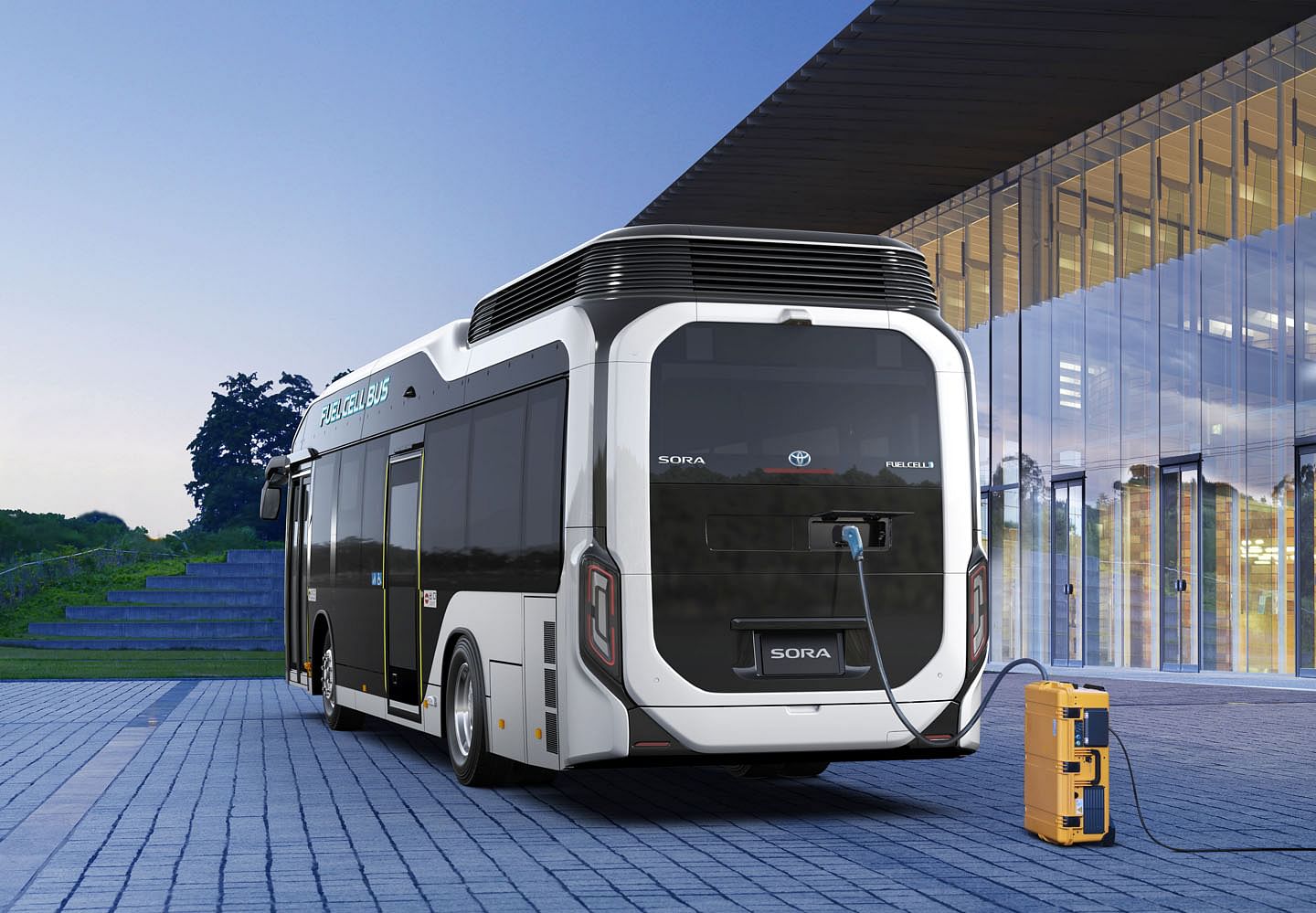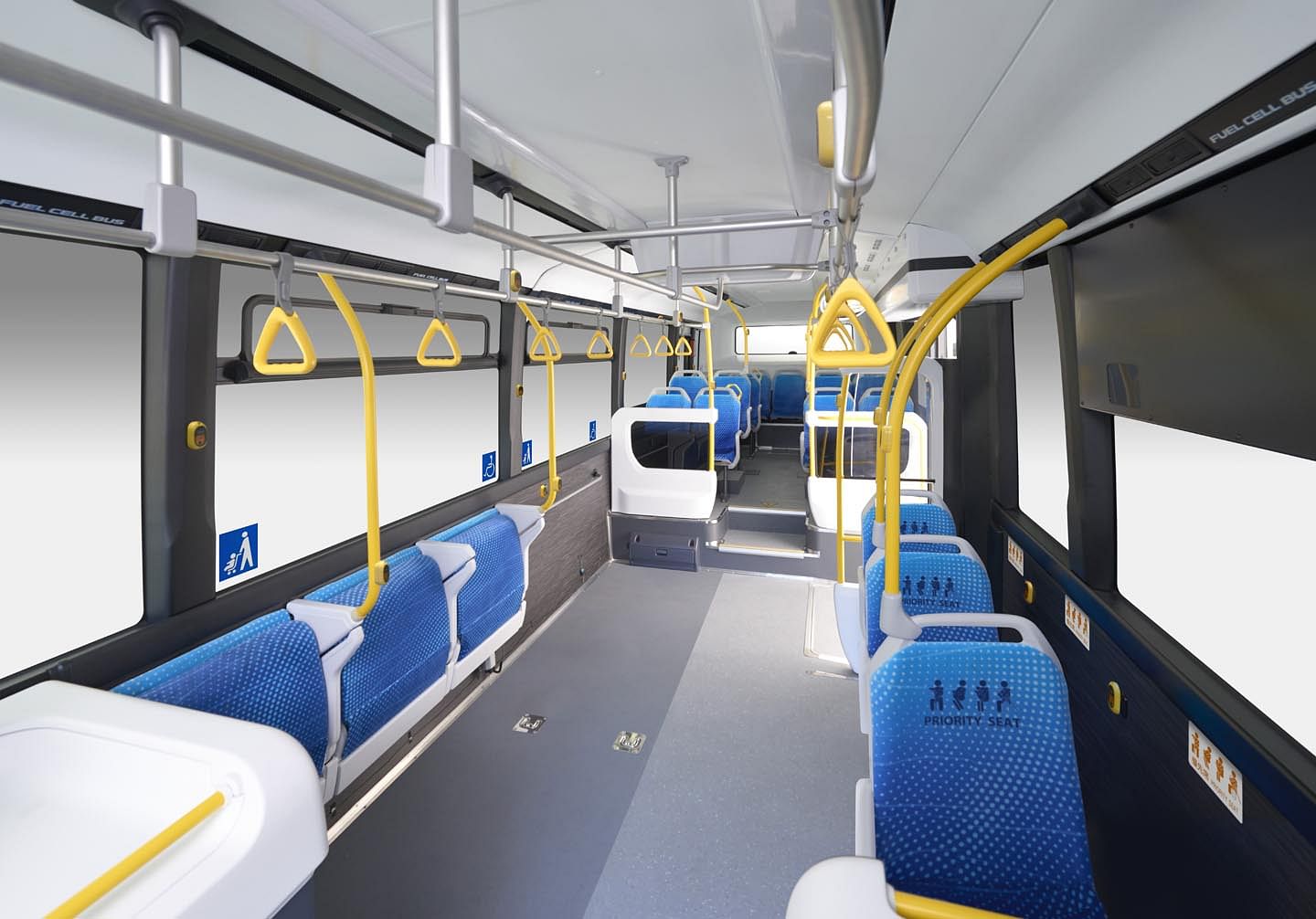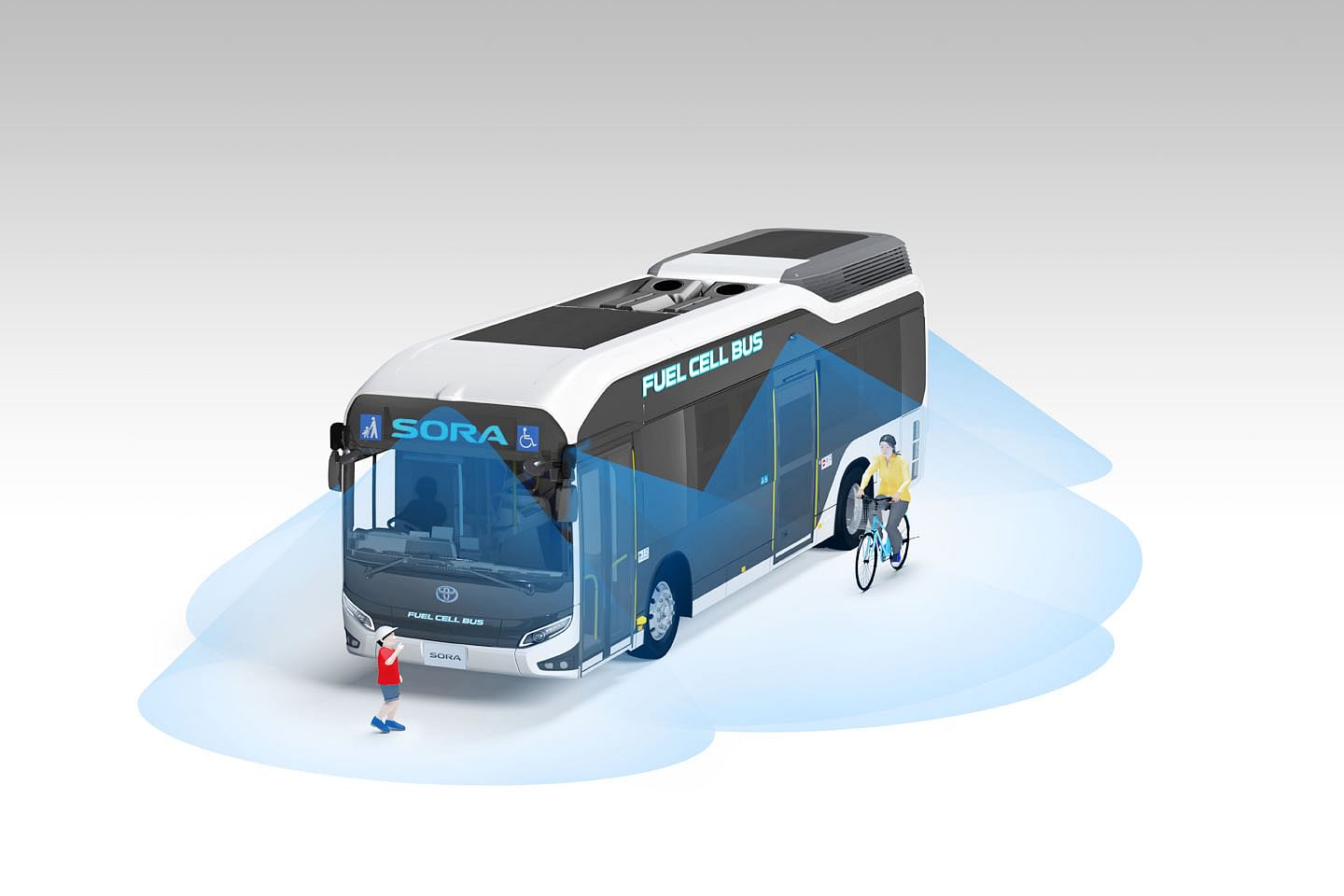Toyota launches Sora production model fuel cell bus
First fuel cell bus in Japan to receive vehicle type certification; over 100 buses expected to be introduced by 2020 within the Tokyo metropolitan area.
Toyota Motor Corporation has begun sales of the Sora, the first fuel cell bus (FC bus) to receive vehicle type certification in Japan. Sora is an acronym for Sky, Ocean, River, Air, representing the earth's water cycle.
The automaker expects to introduce over 100 fuel cell buses, mainly within the Tokyo metropolitan area, ahead of the Olympic and Paralympic Games Tokyo 2020.
In line with its overarching aim of creating a bus that works for and supports society, the Japanese automaker has leveraged the Toyota Fuel Cell System (TFCS) in the Sora for its environmental friendliness and ability to serve as a power source in the event of a disaster. The Sora features human-centric universal design and functions.

The Toyota Fuel Cell System (TFCS), which was developed for the Mirai fuel cell electric vehicle (FCEV), has been employed to realise high environmental performance with no CO2 emissions or Substances of Concern (SoC) emitted when in operation, as well as quiet comfort with minimal vibration.
The Sora is equipped with a high-capacity external power output device, which can provide high output and a large capacity of electricity supply (9 kW maximum output, and electricity supply of 235 kWh) and has potential use as an emergency power source following disasters.

The Sora has horizontal seats with an automatic storage mechanism, a first in Japan. The Sora's seats are automatically stored when not in use, improving comfort and convenience for passengers with strollers and wheelchairs as well as other passengers.
Eight high-definition cameras fitted inside and outside the vehicle detect pedestrians and bicyclists around the bus providing a field of vision support camera system. When at bus stops, the system warns the driver of surrounding pedestrians and bicyclists through sound notifications and images thereby improving safety.

The acceleration control function suppresses sudden acceleration and enables smooth acceleration from complete stops in consideration of the safety of standing passengers. Also, as the bus is not motor operated, there is no gear shifting, resulting in minimal lurching.
The design pursues stereoscopic shaping that significantly differs from the hexahedron (box shape) of conventional buses. It also uses LED technology for the front and rear lights.
RELATED ARTICLES
Autoliv Plans JV for Advanced Safety Electronics With China’s HSAE
The new joint venture, which is to be located strategically near Shanghai and close to several existing Autoliv sites in...
JLR to Restart Production Over a Month After September Hacking
Manufacturing operations at the Tata Group-owned British luxury car and SUV manufacturer were shut down following a cybe...
BYD UK Sales Jump 880% in September to 11,271 units
Sales record sets the UK apart as the largest international market for BYD outside of China for the first time. The Seal...






 By Autocar Professional Bureau
By Autocar Professional Bureau
 28 Mar 2018
28 Mar 2018
 11227 Views
11227 Views






















 Ajit Dalvi
Ajit Dalvi




